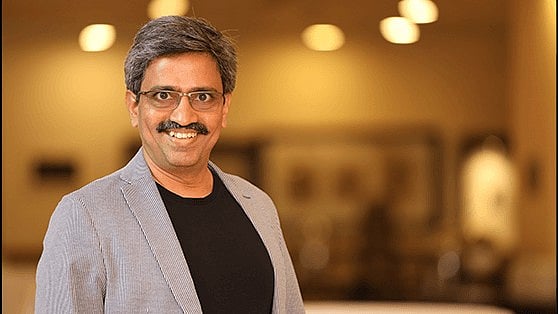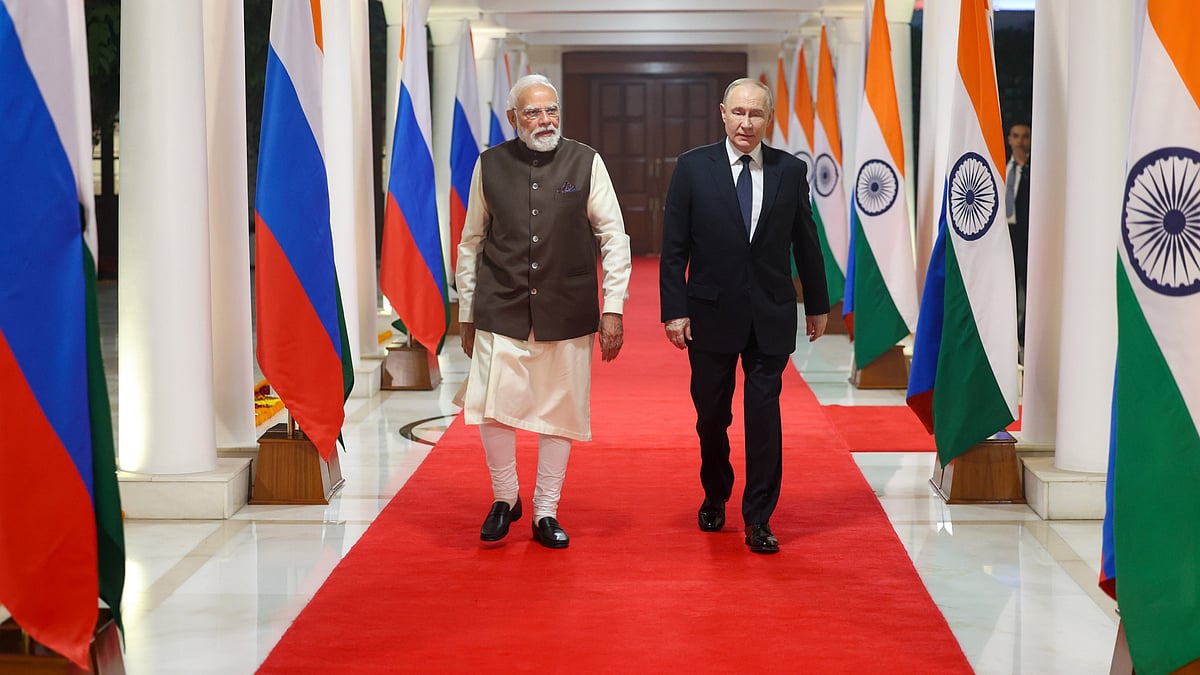Democracy in peril — is this the biggest concern for all of us today? The current dispensation at the Centre is bent on subverting the very structures of democracy in India. History compels us to ask who envisaged India as a democratic nation? It is obviously, the Congress, before and after the independence. For this reason, something needs to be recalled on the occasion of the Raipur Session of the Congress. What was the role of the Congress in making democracy a creed of independent India? And why is the Congress dutybound to save the democracy in today’s India?
At the outset one must set aside the oft-repeated notion that democracy was a gift of British colonialism in India. Colonialism by definition represents the very opposite of democracy. It is the denial of political, economic, and cultural freedom to the colonised people.
Democracy in India was a product of it being a critical element in the imagination of the nation by the anti-imperialist national movement that emerged in India in the second half of the 19th century. The nation that was imagined by Indian nationalists was to be independent, democratic, secular, inclusive of all kinds of diversity and pro-poor—a vision that Rabindranath Tagore, Jawaharlal Nehru and others termed ‘the idea of India’. As Mahatma Gandhi said, such an independent democratic nation or ‘Swaraj...will not be a free gift of the British....It will be a declaration of India’s full self-expression....It is a treasure to be purchased with a nation’s best blood’.
As early as 1895, decades before it was implemented even in Britain, Lokmanya Tilak published a Constitution of India Bill demanding universal adult franchise with no gender, property, education or other qualifications. The colonial state argued that the democratic principle could not be implemented in India, as the religious majority—the Hindus—would then oppress religious minorities—the Muslims and others.
Since this legitimation for the continuance of colonial rule was based on the notion of a divided people, the colonial state made every conceivable effort to create, consolidate and provoke this divide. They were assisted in this task by the communal organisations that were propped up and encouraged by them. This primordial link between colonialism and communalism can never be overstated,particularly since communal forces masquerade as nationalists today.
First, democracy meant civil liberties and the freedom of the press. The leaders of the Indian national movement fought fiercely to protect this right, so much so that the colonial state, in order to control the spread of what they called ‘sedition’, introduced the notorious Section 124A in the Indian Penal Code in 1870. Under which many Congress leaders were arrested during the freedom movement. Gandhiji expressed the commitment of the national movement towards civil liberties in a manner that is very relevant today. He said, “To accept defeat in the matter of free speech and free association is to court disaster...we must defend these elementary rights with our lives.”
Secondly, Indian nationalists were very clear that India, with its enormous diversity, could be forged into a nation only if it was a secular, inclusive democracy. Virtually since its inception in 1885, the INC was to consciously adopt an approach of not forcing the majority opinion on sections not ready yet to go along with it fully, an aspect seen in a distorted manner by some as the politics of ‘appeasement’.
There was a consensus among the entire spectrum of Indian nationalists—the Moderates, Extremists, Gandhi, Nehru, Sardar Patel, Subhas Bose, Bhagat Singh, the Socialists, etc.— that India could not be a democratic nation without being secular, just as it could not be secular if it was not democratic. The only sections which opposed this consensus belonged to the loyalist colonial camp, such as the communalists.
Thirdly, a democratic India was conceived by our nationalist movement leaders as one where the people participated in the nation building process, and vast multitudes of the poor and underprivileged were included and empowered. In Discovery of India, Jawaharlal Nehru quotes Gandhi to describe his ‘idea of India’: I shall work for an India in which the poorest shall feel that it is their country, in whose making they have an effective voice...an India in which all communities shall live in perfect harmony... There can be no room in such an India for the curse of untouchability....Women will enjoy the same rights as men....This is the India of my Dreams.
Indian National Congress looked upon itself as the parliament of the Indian people and it was this party which shaped India as a democratic country. From its formation itself, INC maintained a democratic system within the party as well. Office bearers of the Congress were chosen by election, be it the village level Congress committee or the All-India Congress Committee (AICC).
Open public debate, often with the expression of sharp differences, was to be part of the evolution of the Congress, with major decisions being taken democratically through election. It is important to underline this very fact that the 1931 Karachi Resolution of the INC on Fundamental Rights, drafted by Nehru and revised by Gandhi, had clearly laid down the blueprint for independent India’s democratic Constitution, which was adopted in 1950.
The first major challenge to the notion of a secular democratic India came at the time of Independence and the birth of the Indian Republic. It was an effort at creating the mirror image of ‘Muslim’ Pakistan—a Hindu Rashtra in India by the Communal forces. It was a threat to the very ‘idea of India’ as a secular democracy, and Nehru was not about to let it succeed.
The INC led by Nehru converted the first general elections of 1951–1952, based on the new Constitution of India, into a virtual referendum on the kind of state the vast multitudes of the Indian people sought to endorse. The election campaign of INC emphasised a secular democratic vision for India, for which the Indian people voted overwhelmingly. Thus, the communal threat to Indian democracy was pushed back for decades to come.
But later the forces of communalism manoeuvre their way in disguise. JP movement bolstered them and provided legitimacy among people. This aspect of the legacy of J.P. movement haunts Indian democracy today, as it brought the communal forces very close to state power at the centre. The situation became worrying with the BJP-led National Democratic Alliance (NDA) forming a government at the centre from 1999 to 2004. It enabled the rapid spread of communalism and even permitted the 2002 Gujarat massacre.
Things have become even more dangerous since 2014, as the BJP now rules with an absolute majority and is thus better placed to advance its core agenda. Having seized governmental power, the agenda now appears to be to change the character of the Indian state from a secular state to a communal state. This involves not only changing the character of all the state apparatuses that are actually supposed to uphold the Indian Constitution, but also the mindset of the people, of civil society at large. All this cannot be achieved without force and violence. The regime, therefore, begins to take on a fascist-like character. Nehru calls communalism an Indian variant of fascism, and fascism in all of its forms is the complete opposite to democracy. Obvious is the hope that the Congress will come out with a detailed plan and strategy to fight this battle against fascism.
(Aditya Mukherjee is a renowned historian and a retired Professor of history at Jawaharlal Nehru University.)










